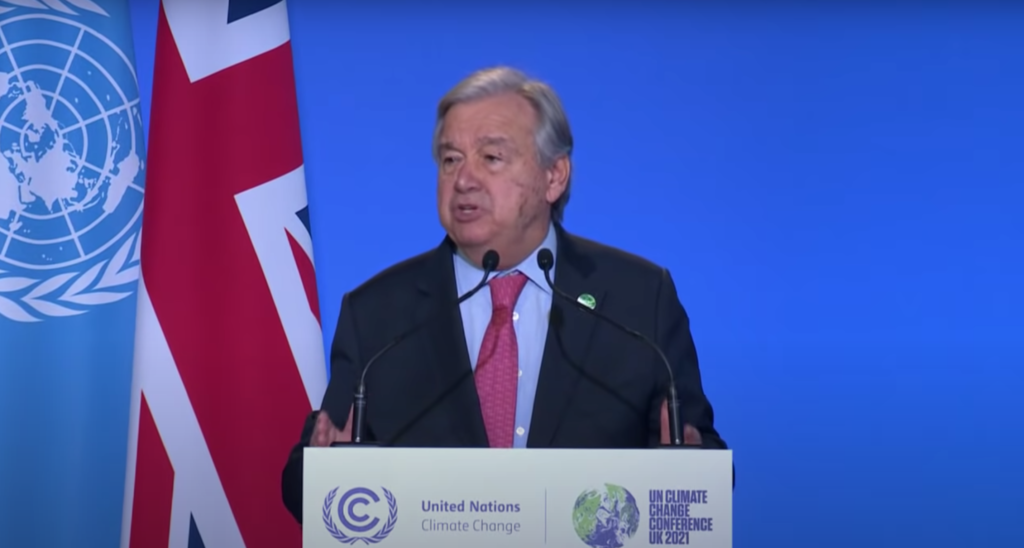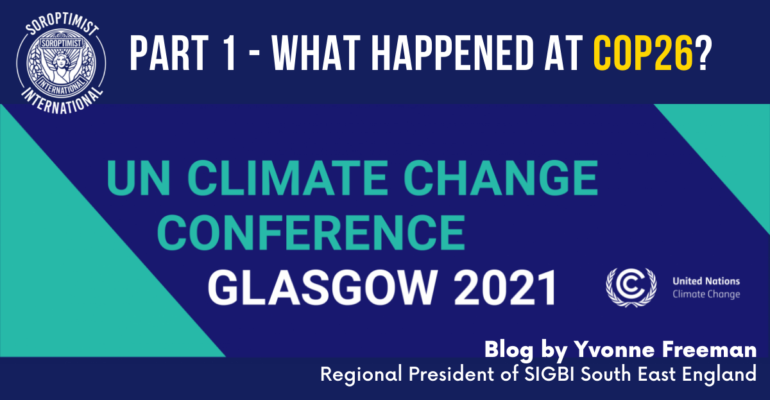Blog by Yvonne Freeman, Regional President of SIGBI South East England.
Opening Ceremony of COP26
The much-anticipated 2021 United Nations Climate Change Conference, known as COP26, began with dazzling performances, with Bagpiper Brighde Chaimbeul, from Sleat, Isle of Skye, opening the ceremony with her own arrangement of the traditional melodies An Leimras and Harris Dance. A video of space-themed images followed with commentary by physicist Brian Cox, Professor of Particle Physics at the University of Manchester, and The Royal Society Professor for Public Engagement in Science. Yrsa Daley-Ward, English writer, model and actor, read a self-penned and inspiring poem, proclaiming ‘this is your invitation to lead with light’.
Boris Johnson, United Kingdom Prime Minister, welcomed everyone to COP26 and Glasgow. He warned world leaders that the longer they fail to tackle climate change, the higher the cost when forced by catastrophe to act. He also said that future generations would not forgive world leaders if they failed to act, and they would be quite right to do so. He noted that we have the technology, the funds and the opportunities, but that we need the will to fight back against climate change. In conclusion he referred to the Paris Agreement as the vehicle for climate action saying, ‘let us now launch that ship.’
Youth climate change campaigner, Brianna Fruean from Samoa, referred to the initiatives of the youth, noting that we all have the power to do better and the weapons to make the change. She said, “the real question is whether you have the political will to do the right thing, to wield the right words, and to follow it up with long overdue action.”
Walelasoetxeige Paiter Bandeira Suruí, a youth activist from the Amazon Rainforest, explained that her father was an Amazonian leader and her friend was murdered for trying to save the forest. Referring to the deforestation and global warming, she said: “It is not for 2030, or 2050 – it is now! We need a liveable existence and future.”

Screenshot of United Nations Secretary-General, António Guterres, at COP26.
UN Secretary General, António Guterres noted the six years since the Paris Agreement had been the hottest on record and the world faces ‘a moment of truth.’ He said, “the science is clear – we know what we have to do and the goal of 1.5 degrees Celsius must be kept alive.” If commitments fall short following COP26, countries must revisit their plans to end their use of coal. He explained that he is establishing a group of experts to measure and analyse those countries who fall short of working towards net zero. Stressing the need for funding towards climate action to be a priority with more public and private finance, he said that multi-lateral agreements between banks is essential. Calling for greater support for developing countries, he stressed that COP26 must be a moment of solidarity.
HRH The Prince of Wales referred to the impact of COVID-19, noting that time was running out, that we must reduce emissions immediately and remove what is already in the atmosphere, and that nature is our best educator. The scale and extent of the threat of climate change means we must all come together to enable every sector to take the action required. He said, ”we need a military-style campaign to mobilise a private sector which can take action”. He concluded by urging those present as the worlds’ decision-makers, to find practical ways of overcoming differences and working together to rescue this precious planet and save the threatened future of our young people.
Sir David Attenborough, broadcaster and naturalist presenter, urged delegates to acknowledge the impact on climate change of carbon emissions and their relationship to temperatures. He noted that as populations grew, we initially had a stable climate but with the increase in industries, we now face huge releases of carbon and climate instability: “We are already in trouble and the stability we depend on is breaking.”
He noted that if working apart we are a force powerful enough to destabilise our planet, then working together we must surely be more powerful to save it. He said that in his lifetime he had seen a terrible decline but that those present could see a wonderful recovery and he added, “that desperate hope is why ladies and gentlemen, delegates, excellencies, the world is looking to you and why you are here.”
Mia Motley, Prime Minister of Barbados, noted the COVID-19 pandemic had taught us that individual states cannot deal with universal challenges alone. There is insufficient finance available for climate action, especially for small island states and the impact is measured in terms of lives lost. The $25 trillion invested was nowhere near sufficient to address climate change, especially as $9 trillion had already been used to address COVID-19.
She stressed the need for world leaders to lead and to resolve to leave Glasgow with the determination to address the issues we face with regards to climate change. We need 1.5 degrees to survive – 2 degrees is a death sentence for the small island states. Her final words were, “try harder, try harder because our people, the climate army, the world, the planet needs our actions now, not next year, not the next decade.”
You can watch the full Opening Ceremony HERE.
First High-Level Sessions at COP26
Following the Opening Ceremony of the World Leaders Summit, the first part of the high-level segment of COP26 was held between 1-2 November. During this time, the Heads of State and Government delivered important statements, with the following key points and objectives:
- Acknowledgment that climate change is a global problem
- Collaboration and collective action are required
- Highest impact is on the poorest countries
- Expectation that COP26 will accelerate action by 2030
- Determination to take decisive action to tackle climate change
- Aligning the outcomes with those in the Paris Agreement
- Vital importance of limiting global temperature rise to 1.5 degrees Celsius
- Mitigation – efforts to reduce or prevent the emission of greenhouse gases
- Adaptation – to the impacts of climate change in order to survive
- Finance – scaling this up from all sources both private and public
- Cutting out global carbon emissions by 2030
- Phasing out of coal powered industries by all countries
All leaders highlighted what they had managed to achieve in their own countries, the areas they had been unable to address due to limited finances, whilst stressing the need for additional finance to be able to take further action.
Leaders from the small island states all highlighted their increased vulnerability with regards to rising sea levels, with nowhere to hide when extreme weather events such as hurricanes occur. There is the additional impact on the economy of the island inhabitants due to disruption to fisheries, coastal erosion and, in many cases, tourism as well.
During the two days, it became clear that states are still trying to deal with the impact of the COVID-19 pandemic whilst at the same trying to address the issues surround climate change. Additional finance must be made available if they are to successfully address both areas and ensure that no one is left behind.

